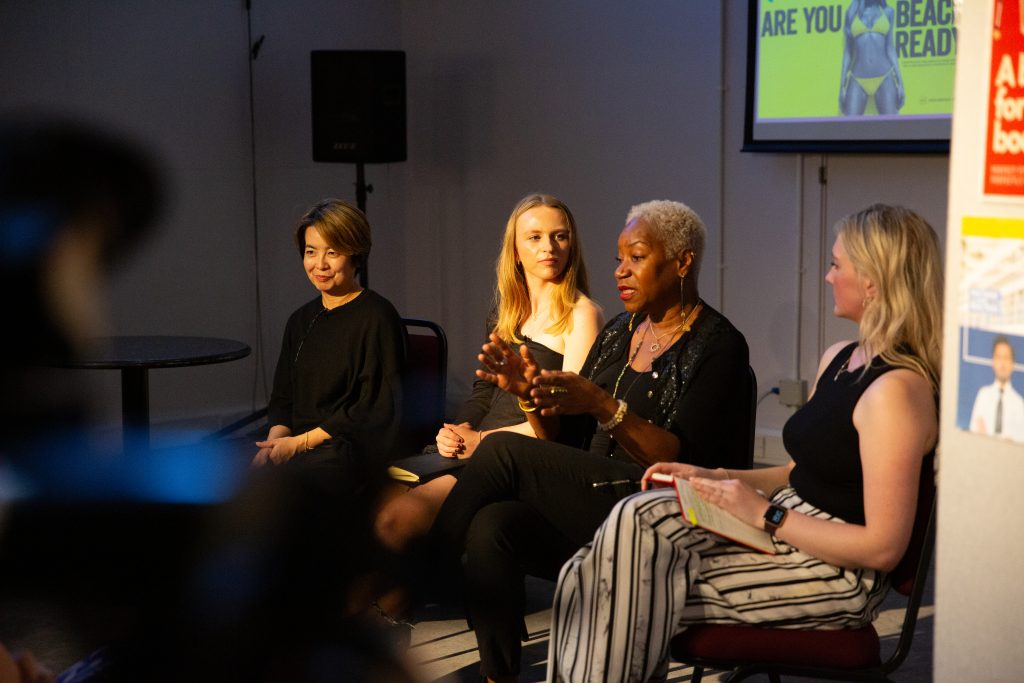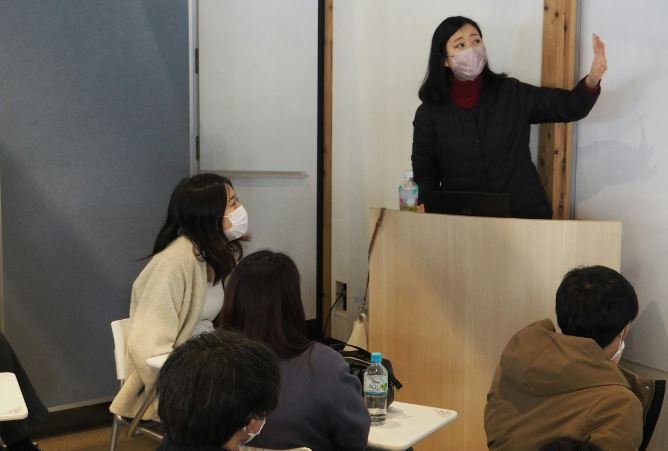

by Raisha Jesmin Rafa, Towards Change Project
In April 2024, we collaborated with Bristol Women’s Voice (BWV) and Women’s Equality Party (WEP) (Bristol, Bath, Avon and North Somerset) in a workshop to engage in an enlightening discussion on the use of gendered racialised stereotypes in advertising as part of our project ‘Towards Change’.
‘Towards Change’ was launched by two University of Bristol students to critically analyse and tackle regressive norms and practices in the advertising industry. Not only are advertisements intended to promote products and services, but they also shape gender roles and behaviour in society. It is not unusual to find that gender stereotypes are embedded in mainstream advertising, including from prominent brands. Despite profound progress in women’s rights and gender justice, why do such stereotypes persist?
These concerns formed the bedrock of our project. We began with a series of small open online workshops held weekly between January and April, mostly with University of Bristol students to discuss and reimagine contentious advertisements. Our project has since evolved to welcome stakeholders from various sectors, including academia, market research, creative agencies, social organisations, and more within and beyond the UK.
Harnessing The Power of Civic Engagement
The 40-minute online workshops were designed to equip participants with greater awareness of inclusive representation of social groups in advertising, encouraging them to become more conscious consumers.
We selected a range of adverts from around the world that sparked outrage for using stereotypes linked to social identities. The process of our workshops followed three steps:
- Dissection: We first showed a banned or controversial to the participants and asked them why they thought the ad received backlash.
- Discussion: The participants were then asked about their thoughts on the advertiser’s intention and the potential ethical and social impacts of the ad.
- Creative Brainstorming: The final step involved gathering the participants’ ideas on how they would reimagine the ad.
Our workshop with BWV and WEP analyzed a controversial Dior eyeshadow ad that was targeted towards the Asian market. Some of the key insights generated through our workshops are detailed below:
- Gender Stereotypes: The workshop participants were critical of advertisements that re/produced thoughtless gender stereotypes. The overuse of thin and conventionally attractive models in sexually suggestive poses was particularly condemned for objectifying women’s bodies and upholding problematic beauty standards.
- Intersectionality: Many advertisements fell short of the participants’ expectations by failing to meaningfully bake in minority women, such as Asian and Black women. The reliance on predominantly fair-skinned or white models was viewed as promoting narrow beauty ideals that could undermine the confidence and self-esteem of marginalized groups.
- Inclusive Representation: Rather than simply ‘adding and stirring’ different social groups in advertising content, participants advocated for a holistic approach to incorporating diverse identities. The participants called for the inclusion of more ethnicities, races, and genders to reflect the evolving socio-cultural landscape, as well as featuring various body types and bodily abilities in order for advertisements to resonate with a larger audience.
Based on these workshop inputs, local creatives then redesigned the contentious ads to convey messages of inclusivity and positivity.
Towards a Responsible Advertising Future
Our workshop outcomes were showcased in an exhibition held on 10 May in Watershed, where a panel of inspiring women gathered to share their insights on inclusivity in advertising. There exists no ‘one-size-fits-all’ approach to addressing issues of inclusive representation. Systemic transformation takes time and effort, and robust partnerships with social organizations, like Bristol Women’s Voice, is imperative to encourage the industry to move towards more progressive gender representation.
Join us in contributing to a socially responsible advertising ecosystem.
